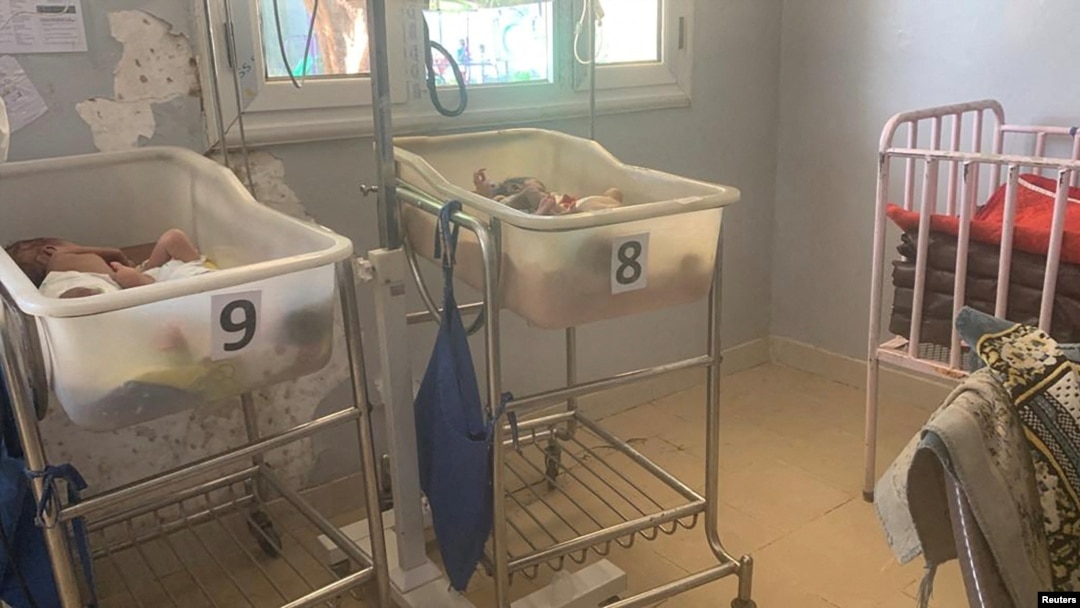At least 50 children - at least two dozen of them babies - have died at the orphanage in the six weeks since the war broke out in mid-April, according to Dr. Abeer Abdullah. That includes at least 13 babies who died on Friday, May 26, she said.
A senior orphanage official confirmed those figures and a surgeon who has volunteered at the facility during the war said there had been at least several dozen deaths of orphans. Both said the deaths were mostly of newborns and others under a year old. All three cited malnourishment, dehydration and infections as the main causes.
There were the infants housed on the upper floors of the state-run orphanage, known as Mygoma. Without enough staff to care for them, they died from severe malnutrition and dehydration, Abdullah said.
And there were the already-fragile newborns in her medical clinic on the ground floor, some of whom died after developing high fever, she said.
“They needed to be fed every three hours. There was no one there,” said Abdullah, speaking by phone from the orphanage, the cries of wailing babies audible in the background. “We tried to give intravenous therapy but most of the time we couldn’t rescue the children.”
The scenes of babies lying dead in their cribs have been “terrifying,” Abdullah said. “It is very painful.”
There were further deaths over this past weekend. Reuters reviewed seven death certificates dated Saturday or Sunday that were shared by Heba Abdullah, an orphan-turned-carer. All cited circulatory failure as the cause of death, and all but one also listed fever, malnutrition, or sepsis as contributing causes.
Reuters spoke to eight other people who have either visited the orphanage since the war began or have been in touch with other visitors. All said conditions have deteriorated badly and deaths have spiked.
Among them is Siddig Frini, general manager of Khartoum state’s ministry of social development, which oversees care centers, including budget, staffing and supplies. He acknowledged a rise in deaths at Mygoma, attributing it mainly to staff shortages and recurrent power outages caused by the fighting.
Without working ceiling fans and air conditioning, rooms turn stiflingly hot in Khartoum’s baking May weather, and the lack of power makes sterilizing equipment difficult.
Frini and the director of the orphanage, Zeinab Jouda, referred questions about the total death toll to Abdullah, Mygoma’s medical chief. Jouda said she was aware of more than 40 deaths, telling Reuters the fighting kept the caregivers - known as nannies - and other staff away in the early days of the war.
Mohammed Abdel Rahman, director of emergency operations at Sudan’s health ministry, said a team is investigating what is happening at Mygoma and will release the results once done.
Even after death, the war stalks the children. Orphans used to be buried in a cemetery to the west of Mygoma but it became too dangerous to travel there, according to Marine Alneel, who has been volunteering at Mygoma in recent weeks. Staff started using another burial place, to the northeast, according to the orphanage official.
Getting the bodies there has now also become dangerous, said Dr Abdullah, speaking by phone on Thursday. She said that a day earlier, two babies who died were instead buried in a city square close to the orphanage. So were six civilians killed in shelling nearby, the doctor added.
“It’s getting very bad here,” she said.


